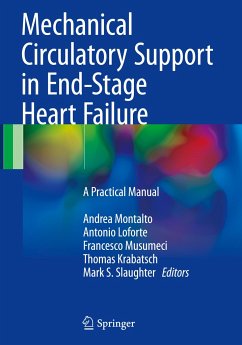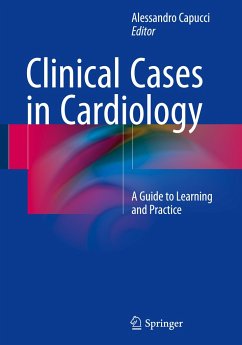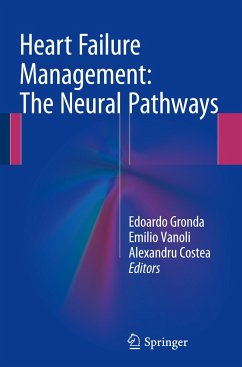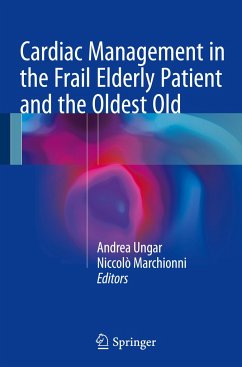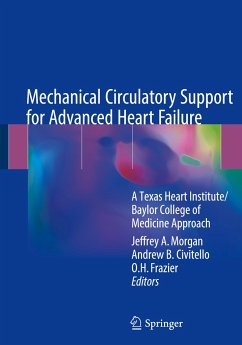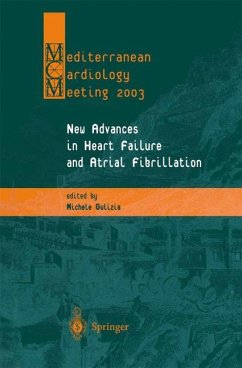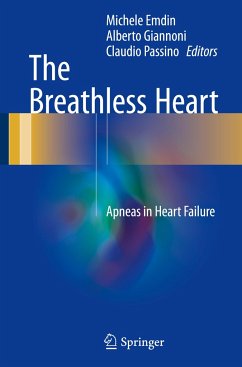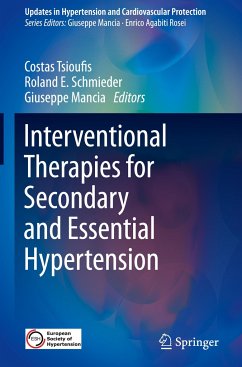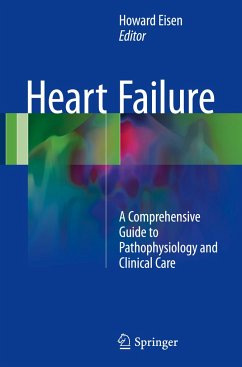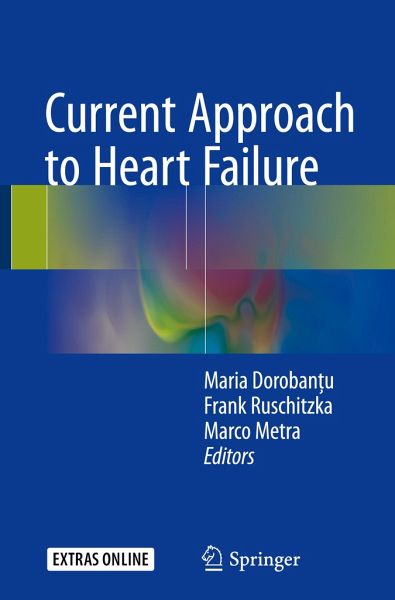
Current Approach to Heart Failure

PAYBACK Punkte
61 °P sammeln!
This book is intended to be a link between guidelines and clinical practice, a complementary tool to help physicians to be well informed regarding the important field of heart failure. It will be a useful tool for professionals from all the fields of cardiology: non-invasive cardiology, interventional cardiology, electrophysiology and cardiovascular imaging.The topic of heart failure is continuously changing, with new important information being added constantly. The pathophysiology is better understood and there is a trend for a better characterization of special groups of population, such as...
This book is intended to be a link between guidelines and clinical practice, a complementary tool to help physicians to be well informed regarding the important field of heart failure. It will be a useful tool for professionals from all the fields of cardiology: non-invasive cardiology, interventional cardiology, electrophysiology and cardiovascular imaging.
The topic of heart failure is continuously changing, with new important information being added constantly. The pathophysiology is better understood and there is a trend for a better characterization of special groups of population, such as oncologic patients with heart failure. The new imaging techniques have become valuable tools for the diagnosis of heart failure, while pharmacological and novel cell and gene treatments have evolved enormously.
The challenge for the practitioners is making the right selection of treatment strategy that best fits a patient. This book presents detailed information on the indications, selection and mechanism of action of these treatments, whether they be mechanical circulatory devices or pharmacological treatments. The contemporary pharmacological and non-pharmacological management of heart failure has the main target of early prevention of disease progression and the avoidance of heart transplant. In the era of shortage of donors, prevention is the mainstay of the therapeutic strategy, and this is the main philosophy of our book.
The topic of heart failure is continuously changing, with new important information being added constantly. The pathophysiology is better understood and there is a trend for a better characterization of special groups of population, such as oncologic patients with heart failure. The new imaging techniques have become valuable tools for the diagnosis of heart failure, while pharmacological and novel cell and gene treatments have evolved enormously.
The challenge for the practitioners is making the right selection of treatment strategy that best fits a patient. This book presents detailed information on the indications, selection and mechanism of action of these treatments, whether they be mechanical circulatory devices or pharmacological treatments. The contemporary pharmacological and non-pharmacological management of heart failure has the main target of early prevention of disease progression and the avoidance of heart transplant. In the era of shortage of donors, prevention is the mainstay of the therapeutic strategy, and this is the main philosophy of our book.



